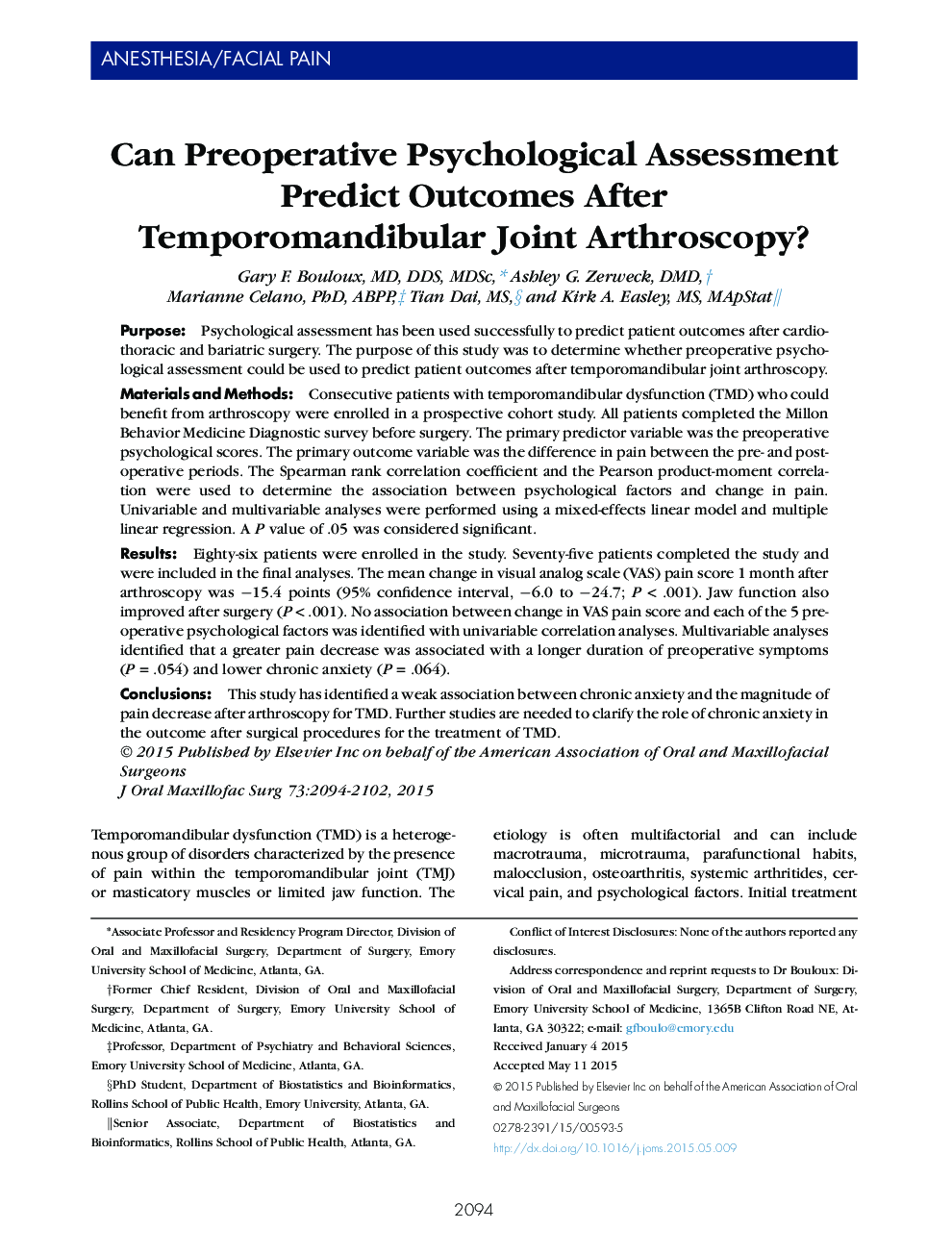| کد مقاله | کد نشریه | سال انتشار | مقاله انگلیسی | نسخه تمام متن |
|---|---|---|---|---|
| 3152220 | 1198003 | 2015 | 9 صفحه PDF | دانلود رایگان |
PurposePsychological assessment has been used successfully to predict patient outcomes after cardiothoracic and bariatric surgery. The purpose of this study was to determine whether preoperative psychological assessment could be used to predict patient outcomes after temporomandibular joint arthroscopy.Materials and MethodsConsecutive patients with temporomandibular dysfunction (TMD) who could benefit from arthroscopy were enrolled in a prospective cohort study. All patients completed the Millon Behavior Medicine Diagnostic survey before surgery. The primary predictor variable was the preoperative psychological scores. The primary outcome variable was the difference in pain between the pre- and postoperative periods. The Spearman rank correlation coefficient and the Pearson product-moment correlation were used to determine the association between psychological factors and change in pain. Univariable and multivariable analyses were performed using a mixed-effects linear model and multiple linear regression. A P value of .05 was considered significant.ResultsEighty-six patients were enrolled in the study. Seventy-five patients completed the study and were included in the final analyses. The mean change in visual analog scale (VAS) pain score 1 month after arthroscopy was −15.4 points (95% confidence interval, −6.0 to −24.7; P < .001). Jaw function also improved after surgery (P < .001). No association between change in VAS pain score and each of the 5 preoperative psychological factors was identified with univariable correlation analyses. Multivariable analyses identified that a greater pain decrease was associated with a longer duration of preoperative symptoms (P = .054) and lower chronic anxiety (P = .064).ConclusionsThis study has identified a weak association between chronic anxiety and the magnitude of pain decrease after arthroscopy for TMD. Further studies are needed to clarify the role of chronic anxiety in the outcome after surgical procedures for the treatment of TMD.
Journal: Journal of Oral and Maxillofacial Surgery - Volume 73, Issue 11, November 2015, Pages 2094–2102
